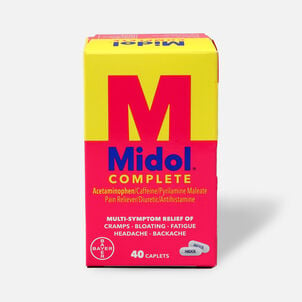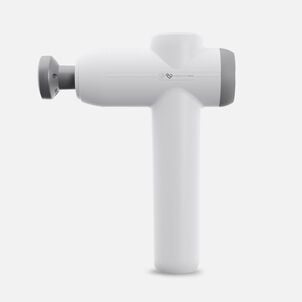You already know that a health savings account (HSA) is a great way to save for future healthcare costs. You can make tax-free HSA contributions as long as you have coverage under a qualified high deductible health plan (HDHP).
With HSA’s triple-tax benefit, there are countless ways that you can use, or not use, your pre-tax funds: to supplement out-of-pocket expenses, use it as an emergency fund, reduce taxable income, or invest and grow as an extra retirement account. Ultimately, it’s your call as to whether you choose to withdraw funds to spend on eligible health essentials, or have funds roll over, from one year to the next.
If you choose to use your funds to cover qualified healthcare costs, you might be a little fuzzy on whose medical care you can pay for with tax-free HSA money. They don't have to be covered under the same health insurance policy you have, and in some cases you can't use your HSA funds to pay for medical care for a person who is covered under your policy. Let's take a look at how this works:
A Quick HSA Coverage Overview
In Publication 969, the IRS clarifies that you can withdraw tax-free money from your HSA to pay for qualified medical expenses for:
- Yourself
- Your spouse (regardless of whether you file taxes jointly or separately)
- Any HSA eligible dependents you claim on your tax return (your children, or a qualifying relative dependent) and any children who are claimed on your ex-spouse's tax return
- Anyone you could have claimed as a dependent, but weren't able to because he or she filed a joint tax return (for example, your married teenage kid who files a joint return with his or her spouse) earned more than $4,700 (in 2023), or you (or your spouse, if you file jointly) could be claimed as a dependent on someone else's tax return
As long as the person is in one of the above categories, you can reimburse yourself for the cost of their qualified medical expenses with tax-free money from your HSA. It doesn't matter whether the person was covered under your HDHP, or even whether they had health coverage at all. Let's clarify with some examples:
Spouse on Medicare, young adult child on parent's HDHP
You're 60, your husband is 66, and you've got a 25-year-old daughter. You've kept your daughter on your health insurance, because the coverage that her employer offers is more expensive. You've got an HDHP through your employer, which covers you and your daughter.
Your husband is on Medicare
You're allowed to contribute the full family amount to your HSA, because your HDHP is covering both yourself and your daughter. But you can only use your HSA funds to pay for your own medical care and your husband's. You can't use it to pay for your daughter's care, because you can't claim her as a tax dependent.
This is a good example of how the tax rules (which pertain to HSA contributions and withdrawals) are separate from the insurance rules (which pertain to who is allowed to be covered under your plan).
It's also worth noting that your daughter can open her own HSA, since she's covered by your HDHP, but files her own taxes. (She would not be able to contribute to her own HSA if she were still your tax dependent.) She can contribute the full $8,300 to her HSA for 2024, since she's covered under a family HDHP.
And if you want, you can make contributions to her HSA on her behalf. She would then be able to withdraw funds from her own HSA to cover her own medical expenses.
Spouses have separate health plans, dependent child covered under university insurance
You and your wife each have coverage through your own employers. You have an HDHP that just covers yourself, while your wife has a non-HDHP for her own coverage. You have a 20-year-old son who is a full-time college student.
He's enrolled in the non-HDHP health insurance plan that his college offers. You and your wife file a joint tax return, and claim your son as a dependent (as long as he's a student, you can claim him as a dependent until he turns 24).
You can contribute $4,150 to your HSA in 2024, since you have self-only HDHP coverage. But you can use the money in your HSA to pay for qualifying medical expenses for yourself, your wife, and your son.
Divorced mom who supports elderly parents and does not have custody of her daughter
You and your ex divorced a few years ago, and your ex, who has primary custody, claims your daughter as a tax dependent. Your elderly parents live with you and you claim them as qualifying relative dependents.
Your parents are enrolled in Medicare, your daughter is covered under your ex's health plan, and you have a non-HDHP plan through your current employer. But your previous employer offered an HDHP, and you stashed away some money in an HSA while you worked there. You can't contribute any more money to your HSA, unless you switch to another qualified HDHP. But you can use the money that's left in your HSA to cover qualified medical expenses for yourself, your daughter, and your parents (parents are only eligible if qualifying relative dependents, like we mentioned above).
Even though your daughter is not your tax dependent, the IRS considers her to be your dependent (because she qualifies as a dependent for whom you could have claimed) for the purpose of being able to use your HSA funds to cover her medical expenses.
There are a lot of things to keep in mind when it comes to paying for family healthcare with HSA funds. And you should definitely contact your HSA administrator if you have any questions about your own family situation. But know that a little research can result in a lot of security down the line.
—
Thank you for visiting the HSA Store Learning Center. Don’t forget to follow us for more helpful tips on Facebook, Instagram, and Twitter.



.png)
















